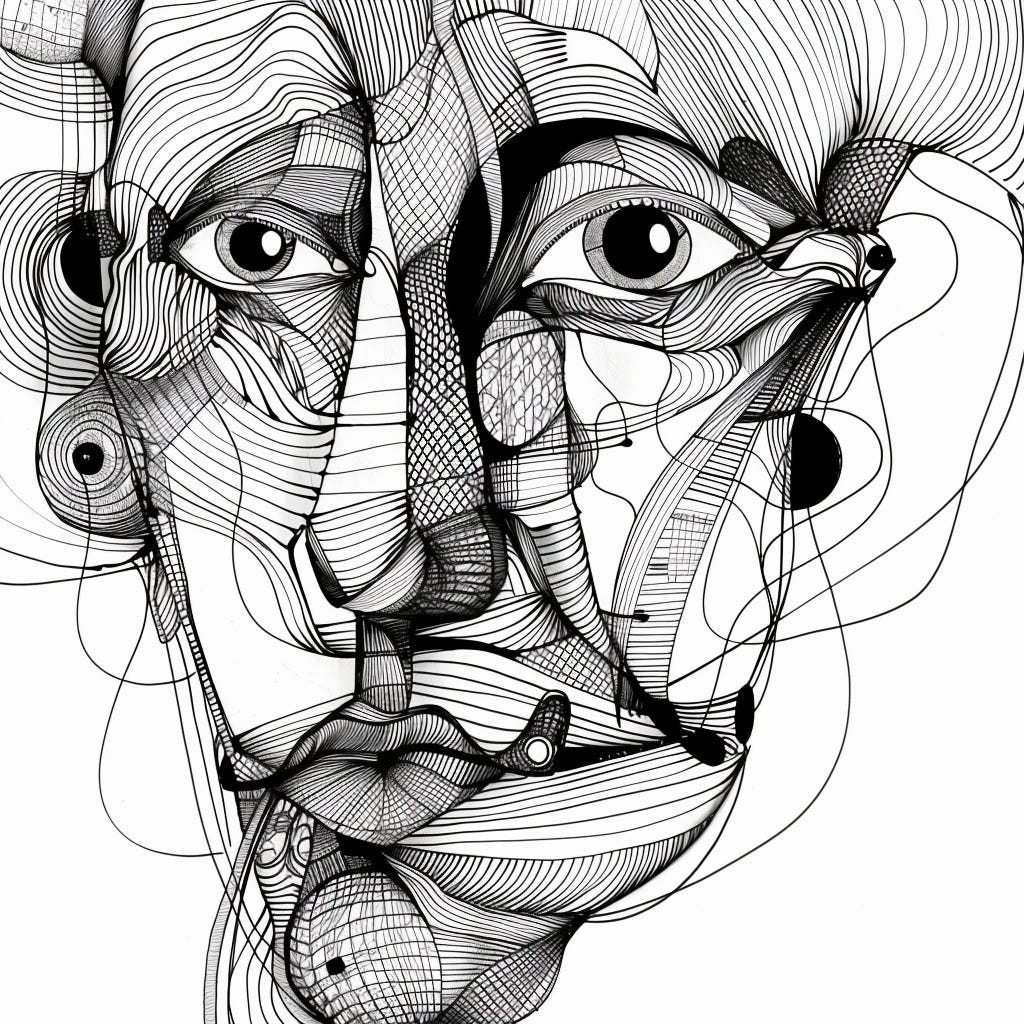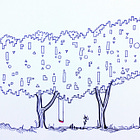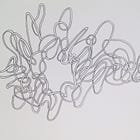In this post, I will argue why people who are more reflexive, open to diverse perspectives, and cognitively flexible need to invest extra time in self-care and "switching off."
Note: This post is not a critique or discussion of meritocracy. I picked meritocracy because the tension described is widespread and hopefully relatable.
Scenario
Person A
Person A believes that meritocracies exist and function as intended. They think that anyone contradicting this view is wrong. Their life experience backs this up—they received scholarships, and authority figures recognized them for their work. They faced major challenges and surmounted those challenges using their grit and smarts. A's parents were like a broken record: "Anyone can succeed if they work hard!" Family stories and stories from their tight-knit community reinforced this belief.
When they got a string of jobs at companies claiming to be pure meritocracies, they experienced life-changing economic outcomes and a steady string of promotions, further backing up their beliefs.
Person B
Person B believes that meritocracies—while appealing in theory—rarely occur due to systemic inequalities and biases. However, they also acknowledge A's view and appreciate the context within which that view may emerge. They also recognize a spectrum—that some environments claiming to be meritocracies may be marginally better at achieving that ideal. They don't view A as "wrong" or "misguided" but believe dialogue and bridge-building are necessary. B's work experience is more diverse, and at multiple points in their career, they experienced systemic inequalities. They took sociology, political science, and critical theory courses in school, which shaped their views.
Like A, they worked in companies claiming to be pure meritocracies, but they experienced multiple situations where "best and brightest" equated to "most like us." And despite all of the talent in the room, the companies failed.
Discussion
What claims can we make about Person B?
They appear to be more reflexive. Reflexivity is the ability to critically reflect on one's beliefs, experiences, and context and, through doing that, develop a deeper understanding of how these factors influence one's perspectives and actions.
They seem more willing, capable, or interested in keeping conflicting ideas in their head. Things aren't binary.
They may be more effective than Person A when bridging gaps between diverse groups.
These claims are highly contextual and important to take with a huge caveat. Person A might be extremely reflexive and capable of juggling competing other ideas in other parts of their life. And Person B might be very close-minded and risk-averse regarding different issues.
Maybe I'm letting on my B^2-side here (2nd order B thinking), but you get the idea.
But we can also say…
Person B is objectively carrying more in their head.
Like the newsletter? Support TBM by upgrading your subscription. In the next couple days, I will be sending out information to TBM supporters about two events in September.
Person A has an easy answer when things go wrong: "The system works, so any failure must be due to individual shortcomings or lack of effort." Person B, on the other hand, has to invest a lot of mental energy to process the situation and consider multiple perspectives. Assuming they work with Person A, they must also invest much cognitive energy in processing A's tendency towards a binary view.
Imagine Person B's inner dialogue:
OK, I don't fully agree with A, but I can imagine how they came to believe what they believe.
Person A doesn't seem to like me. They think I'm wrong. How do I handle that?
Woah, A thinks we "Just need to fire Jacqueline." Processing that.
I'm guessing there are parts of our organization that more and less resemble the pure meritocracy A believes in. How does that factor in?
Oh, wait, I expect to say something about this in this meeting.
Jacqueline is side-channeling me asking if she is going to be fired. Fuck.
If I raise a nuance, people will think I'm weak. Wait, am I? I probably have some strengths in this area but some challenges in others. And…
People Person A has one thought:
We just need to fire Jacqueline
Now multiply this across days, weeks, months, and years.
This post is not about the validity of views of meritocracy. What I'm trying to demonstrate here is that if you identify more with Person B—how they think, the paradoxes they carry, etc.—you will need to spend extra time taking care of yourself. There's a reason why Person A can "switch off" work more easily and seems to float through situations you find more difficult.
Emotional labor, epistemic relativism, perspective-taking, navigating cognitive dissonance, and reflexivity are not "free." It's work, and it is draining. It is draining to navigate environments where (most people) are confidently sure of themselves or at least work hard to portray that.
Here's the big risk I have experienced multiple times in my career. If you dig yourself into a hole too deep, you risk diminishing the skills you hold dear. You risk being polarizing and not extending the open-mindedness you value, especially toward the people you find most challenging (who often have significant power and influence).
Be you. But be a sustainable version of yourself!
Like the newsletter? Support TBM by upgrading your subscription. In the next couple days, I will be sending out information to TBM supporters about two events in September.
Similar articles written over the years:








I have had to learn to build and maintain boundaries. This also hurts and takes energy. Even the sustainability measures cost.
While I identify with person B, this reads reductive into what is in person A's mind, or how they came to the conclusion to "fire Jacqueline". Yes you place the disclaimers. To me it still reads as a binary explanation of perspectives, one of which is binary thinking.
"Fire Jacqueline" is a context that invites sympathy to the B side. But decisions have to be made in all sorts of contexts, for example decide color pattern of advertising banner, or what food to serve at an event. Folks try to learn all sorts of concepts and practices to create focus and get to decisions quicker. It doesn't always show on the outside. Love the introduction of the topic though. And big fan of your newsletter.